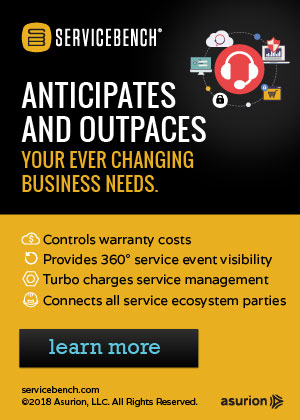August 22, 2006 |

|
ISSN 1550-9214 |
Disk Drive Warranties:As our warranty tour continues, we've finally found a product segment for which warranties vary tremendously from one company to the next. And competitive marketing strategies seem to matter more than either product specs or price.Who knew that computer disk drive warranties were so variable? After a week spent looking at MP3 players and digital cameras, most of which featured either short or very short warranties, one could be forgiven for assuming that the same story would be told with hard drives. But as we got deeper into our research for this week's roundup of internal and external hard drives, and flash memory-based pocket-sized units, it became clear that warranty varies tremendously from one vendor to another. In fact, we were originally going to do a roundup of both magnetic and optical storage this week, until the list of just the magnetic products grew too long by half. It turns out that hard drive warranties vary all the way from 90 days to five years. And that's just within one vendor -- well, if one counts Seagate Technology and Maxtor Corp. as a single company. Though they've now merged, the market still lists their products separately, as we have done here. And while Seagate's internal hard drives include a five-year warranty, some of Maxtor's external drives carry only a 90-day warranty on both parts and labor. Warranty War?In the August 2 newsletter, we failed to find a computer covered by a five-year warranty, and the best computer monitor warranty found in the August 8 edition was four years (at NEC). Only a handful of printers featured multi-year warranties, and they tended to be of the older impact type. But in at least the first list below, it's clear that there's something of a warranty war raging, with Seagate in a dogfight with Fujitsu, Hitachi, and Western Digital. In the external hard disk segment, vendors aren't as brave, with most providing only one-year warranties (though two vendors provide three-year warranties for some of their products). but hold on, because now there's a new type of external memory, called a USB drive, which plug into the Universal Serial Bus now included on many desktop and notebook computers. Those that follow the USB 2.0 standard don't even need their own power source, because they can run off the computer to which they're connected. And although some of the external hard drives have now shrunk down to the size of a paperback book, most of these USB drives are no thicker than a fat magic marker. Most of the USB drives are built using flash memory, which essentially means there are no moving parts. But a few vendors, for instance Verbatim Corporation Inc., have managed to shrink the rotating platter of a typical hard drive down to magic marker size. Though they look small enough to be flash memory-based, they're actually just miniature external hard drives. Then there are all sorts and shapes and sizes of card-based or stick-based flash memory. For instance, many digital cameras and some MP3 players use removable memory sticks or cards that can plug into a USB port. We listed a few, including some that operate much like the old-fashioned floppy disks (but at much higher capacities), but the intent here was to follow the market. And most of the merchants we checked with seem to be stocking all those different shapes and sizes merely as a courtesy to their customers, while they tout and push the external hard drives and the external USB drives. In fact, a few seem to have cut their prices just in the last week. Sampling of Manufacturers & ProductsNot every manufacturer is included, and for each vendor not every model they sell is listed. For instance, Dell resells storage products from Adaptec, ADS Technologies, Apricorn, Archos Technology, Belkin Components, Buffalo Technology, Buslink, CMS Products, Hitachi, I/O Magic, Iomega, LaCie, Linksys, Maxtor, Micronet Technology, Seagate, SimpleTech, SmartDisk, Teac America, US Robotics, and Western Digital. Dell also sells a handful of internal disk drives and external flash memory modules under its own brand name. Only the latter are included here. And, we should note, flash "Memory Key" products sold under the Dell brand name carry a one-year warranty. We had to call India to make sure of that, because Dell doesn't reveal its warranty periods until after you've made your purchase. "To determine which warranty came with your hardware product(s), see your packing slip or invoice," the company states on its Web site. Or, if you want to know the warranty before you buy, you can send a letter to headquarters. There is, however, a good side to Dell's hard drive warranties. The internal hard drives sold under the Dell brand name have a standard one-year warranty, or they can follow the warranty of the system into which they're installed -- whichever is longer. So if the notebook or desktop is out of warranty at the time the hard drive is purchased, the disk drive's warranty is one year. But if there are 18 months left to run on the system's warranty, the hard drive's warranty will also extend for 18 months. If the computer's warranty has two years to go, the hard drive is warranted for that entire period. And so on. For all of the vendors below, we sampled the respective product line to discover whether every brand and every model has the same warranty period, or if there are differences between product families. In each of the three charts that follows, the name of the warranty provider comes first, followed by a string that hopefully contains a brand name, a model number, and a brief description of the product. Size Matters?We gathered information on capacity (MB is a million bytes, GB is a billion, and TB is a trillion), rotations per minute (5400 rpm, 7200 rpm, etc.) and interface (SCSI, FireWire, Serial ATA, etc.) in the false hope that this would have some bearing upon warranty. The only physical attribute that seems to have any bearing upon warranty is size -- and by that we mean physical size, not capacity. For instance, both Hitachi and Toshiba give their slimmest 1.8-inch units the shortest warranties. And they're more expensive than their thicker cousins with the same storage capacity. On each of the three lists below, the products are listed in ascending order based on the parts warranty, and within that, in ascending order based on price. Of course, prices aren't included, first because we're not publishing a shopping bulletin, and second because prices vary tremendously among retailers. In cases where we relied upon street prices, we collected them as many as we could from one merchant. However, some manufacturers helpfully included list prices, making it unnecessary for us to collect street prices for their product lines. In addition, all models were checked to see if in fact they were for sale. For instance, some internal hard drive manufacturers have announced very large capacity units designed for notebooks, which seem to have not yet reached the market. And while some flash memory manufacturers tout product lines that range from the very small to the very large, most retailers have stopped selling the small ones and have not yet started stocking the large ones. And for discontinued, used or refurbished models, anything goes when it comes to warranty. Internal Hard Drive Warranties
Seven out of the 11 internal hard drive vendors had at least some product that carried multi-year warranties. Seagate and Fujitsu were the only two whose entire internal drive lineup was multi-year. And as we'll see in a moment, Seagate's external lineup is entirely single-year. Note also that a handful of labor warranties are listed as being zero years. This doesn't mean that workmanship is not warranted. Rather, it means that in the event of a warranty claim the company will ship a new unit to the customer, who will have to do the replacing themselves. In other words, labor is not included. In the chart below, there are a couple of additional instances of this. It's far more common with the USB drives in the third chart, frankly because replacement is really the only option should there be a warranty claim. Also, in almost all the cases where the actual warranty policy was spelled out in detail, the company states that it is not responsible for either lost data or its recovery. So if a unit is replaced, it will most likely arrive empty. The only reason we mention this is because one of the latest innovations in extended warranties is to team up with a data recovery company. Internal vs. ExternalThe difference between an internal and external drive is obvious. The reasons for the warranty differences are less so. Compare the chart above to the chart below, especially the entries for Western Digital and Seagate. Equal specs does not mean equal warranty. We suspect the difference has more to do with the possibility that external units could be dropped or damaged, and that such accidents might be passed off as warranty claims. As with notebook computers and handhelds, spills and falls are not supposed to be covered, but it's not always possible to diagnose the real reason for a failure. It's also not good customer service to tell your customers you don't believe them. And so, a shorter warranty is the result. External Hard Drive Warranties
The difference between an external hard drive and a USB drive is not so obvious. First, many of the latest external drive models also use a USB connector, although some of the fastest follow the FireWire standard (or both FireWire and USB). Second, as is evident from a quick comparison of the charts above and below, some companies sell both. In technical terms, flash memory has no moving parts, while hard drives have a magnetic platter that can rotate as fast as 10,000 times per minute. While that's not very interesting to most customers, it matters a great deal in terms of warranty. It's a simple rule of engineering: movement causes friction, friction causes heat, and heat causes damage. Or, to put it another way, moving parts wear out over time. That goes a long way towards explaining why there are so many products on the list below with "lifetime" warranties. USB drives are the latest storage gizmo to make it to market. They typically provide between 64 megabytes and 8 gigabytes of storage capacity. We say typically, because as is clear from the descriptions of two units made by Kanguru Solutions, it's now possible to cram as much as 64 gigabytes into one of these magic marker-sized products. However, the Kanguru KFDM-64G also has a super-sized price: $2,800. And while Edge Tech Corp. and Kingston Technology Co. have 8 gigabyte units on the market (at prices of $250 and $400, respectively), several additional manufacturers have announced but not yet shipped units in that size. So one should consider 8 gigabytes to be the vanguard of this relatively new product class. Retail prices for the smallest units typically fall below $10, making them affordable as giveaways (not much more, really, than other logo products such as umbrellas or T-shirts). And warranties can be as short as 90 days (at Cisco Systems), though two- or even five-year warranties are more typical. What Is Life?Then there are the "lifetime" warranties. We called a couple of vendors to ask them whose life do they base that on. Is it the lifetime of the owner, or the lifetime of the owner's computer? No, they said, it's the lifetime of the USB drive. Perhaps they were being a bit coy, because their warranties usually included some phrase such as "normal lifetime" or "expected lifetime," which is elsewhere defined as approximately 10 years. In fact, one company that provides a "lifetime" guarantee in the U.S. inadvertently spelled that out in the fine print. Kingston Technology provides a "lifetime" warranty on its CompactFlash memory cards worldwide, but this unlimited attribute is expressedly limited to 10 years in France, Germany, and Austria. The corresponding card reader, meanwhile, has a five-year warranty. So let's be reasonable. In the chart below, where it says "life," figure it's really 10 years -- which nevertheless is still twice as long as any of the numerically defined warranties. Then again, given how many companies are jumping into this market segment, and given how fast prices are falling, it's possible that what will matter most in the long run is the lifespan of the manufacturer. Flash Memory Device Warranties
A couple of things are worth mentioning. On July 1, Transcend Information Inc. lengthened its flash drive warranty from five years to "lifetime." Kanguru Solutions, in addition to providing only 90 days of free labor, also charges $35 for the repair of a broken USB connector, whether the unit is in or out of warranty. As we noted up top, it was our intent to cover both magnetic and optical storage in a single column. But that seemed untenable, given the number of hard drive and USB drive manufacturers and the differences between their warranties. So we'll cover CD and DVD drives next week, and in an effort to hasten our warranty tour's entrance into the world of consumer electronics, we'll cover both standalone and computer-attached units, and both players and recorders. Other Stops on the Warranty TourAutomotive WarrantiesComputer Warranties
Consumer Electronics
| |||||||||||||||||||||||||||||||||||||||||||||||||||||||||||||||||||||||||||||||||||||||||||||||||||||||||||||||||||||||||||||||||||||||||||||||||||||||||||||||||||||||||||||||||||||||||||||||||||||||||||||||||||||||||||||||||||||||||||||||||||||||||||||||||||||||||||||||||||||||||||||||||||||||||||||||||||||||||||||||||||||||||||||||||||||||||||||||||||||||||||||||||||||||||||||||||||||||||||||||||||||||||||||||||||||||||||||||||||||||||||||||||||||||||||||||||||||||||||||||||||||||||||||||||||||||||||||||||||||||||||||||||||||||||||||||||||||||||||||||||||||||||||||||||||||||||||||||||||||||||||||||||||||||||||||||||||||||||||||||||||||||||||||||||||||||||||||||||||||||||||||||||||||||||||||||||||||||||||||||||||||||||||||||||||||||||||||||||||||||||||||||||||
| |||||||||||||||||||||||||||||||||||||||||||||||||||||||||||||||||||||||||||||||||||||||||||||||||||||||||||||||||||||||||||||||||||||||||||||||||||||||||||||||||||||||||||||||||||||||||||||||||||||||||||||||||||||||||||||||||||||||||||||||||||||||||||||||||||||||||||||||||||||||||||||||||||||||||||||||||||||||||||||||||||||||||||||||||||||||||||||||||||||||||||||||||||||||||||||||||||||||||||||||||||||||||||||||||||||||||||||||||||||||||||||||||||||||||||||||||||||||||||||||||||||||||||||||||||||||||||||||||||||||||||||||||||||||||||||||||||||||||||||||||||||||||||||||||||||||||||||||||||||||||||||||||||||||||||||||||||||||||||||||||||||||||||||||||||||||||||||||||||||||||||||||||||||||||||||||||||||||||||||||||||||||||||||||||||||||||||||||||||||||||||||||||||







